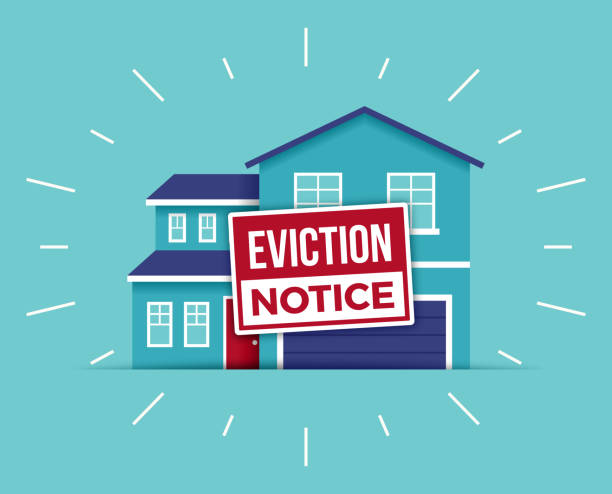Getting kicked out of your home is stressful. Even more so when it happens unfairly. Many renters don’t realize that landlords can’t just change the locks or throw out your stuff. In fact, doing so could be illegal. If you’ve been forced out without due process, a wrongful eviction lawyer can help you take action. Don’t wait. Timing matters in these cases.
Contents
- 1 First, What Counts as a Wrongful Eviction?
- 2 What Legal Eviction Should Look Like
- 3 Why Wrongful Evictions Happen
- 4 Real Consequences for Landlords Who Break the Law
- 5 What to Do If You’ve Been Illegally Evicted
- 6 What If You Already Left the Apartment?
- 7 Tenant Protections Are Stronger Than You Think
- 8 Common Myths About Evictions
- 9 How a Wrongful Eviction Lawyer Can Help You
- 10 What to Ask When Hiring a Lawyer
- 11 Protect Yourself Before Things Go South
- 12 Final Thought
First, What Counts as a Wrongful Eviction?
Not every eviction is illegal. But many are. Let’s break it down.
A wrongful eviction usually involves one or more legal violations by the landlord. Here are common examples:
- Locking you out without a court order
- Removing your belongings without notice
- Shutting off utilities to force you to leave
- Harassing or threatening behavior to pressure a move-out
- Evicting without proper notice or without legal cause
In most cities, landlords must go through the courts to evict someone. They can’t take shortcuts. They can’t punish you for reporting problems. And they can’t use intimidation as a legal tactic.
What Legal Eviction Should Look Like
A proper eviction follows a clear legal process. It looks like this:
- Notice is given: Usually a 3-day, 30-day, or 60-day notice. It depends on your lease, how long you’ve lived there, and the reason for eviction.
- Court filing: If you don’t move out after the notice period, the landlord must file an unlawful detainer lawsuit.
- Court hearing: You get a chance to appear and defend yourself.
- Sheriff involvement: Only after a court rules in the landlord’s favor can law enforcement enforce an eviction.
Anything outside of that process is likely illegal.
Why Wrongful Evictions Happen
Landlords sometimes cut corners. Others may act out of spite. Here’s why wrongful evictions happen more than you’d think:
- You reported unsafe conditions like mold, leaks, or pests.
- You asked for repairs, and they didn’t want to deal with it.
- You’re protected by rent control, and they want to charge more.
- They want to remodel or sell the unit and hope you’ll just leave.
- You missed rent, but instead of going to court, they took matters into their own hands.
None of these excuses gives them the right to skip the legal process.
Real Consequences for Landlords Who Break the Law
If your landlord wrongfully evicts you, they’re not just being unethical. They may owe you compensation.
Depending on where you live, you could be entitled to:
- Monetary damages (sometimes 2–3x the rent)
- Reimbursement for property losses
- Punitive damages in cases of harassment or violence
- Moving and relocation expenses
- Attorney’s fees
In Los Angeles, for example, tenant protection laws are especially strong. Courts don’t look kindly on landlords who try to game the system. That’s where a skilled wrongful eviction lawyer becomes your best ally.
What to Do If You’ve Been Illegally Evicted
If you think your eviction wasn’t legal, don’t panic. Take action quickly. Here’s what to do, step by step:
- Document everything: Photos of locked doors, removed belongings, and damage. Save texts, emails, and voicemails.
- Write down the timeline: Note every interaction, every date, every violation.
- Stay calm: Don’t threaten back. Don’t re-enter the unit without police or legal help.
- Call a lawyer: The sooner, the better. A wrongful eviction lawyer can help restore your rights—or get you paid for the loss.
- File a police report if your belongings were taken or locks were changed illegally.
- Gather witnesses: Neighbors, roommates, or anyone who saw or heard what happened.
You don’t have to fight this alone. Legal support gives you leverage.
What If You Already Left the Apartment?
Even if you’ve moved out, it may not be too late. If your departure was forced, sudden, or triggered by landlord intimidation, you may still have a case.
You can sue for damages. You can demand compensation for:
- Lost personal property
- Emotional stress
- Unplanned moving costs
- Hotel stays
- Lost work time
In many cases, the law is still on your side—even after you’re gone.
Tenant Protections Are Stronger Than You Think
In cities like Los Angeles, Oakland, San Francisco, and New York, tenant protections go deep. Especially for rent-controlled or rent-stabilized units.
Here’s what you may be protected from:
- No-fault evictions without relocation payments
- Owner move-in evictions that aren’t real
- Ellis Act evictions used as loopholes
- Retaliatory evictions after code complaints
These aren’t small violations. Landlords who break these rules may face serious penalties in court.
Common Myths About Evictions
Let’s bust a few common myths that confuse tenants:
- “If I miss rent, they can throw me out immediately.”
False. They still need to go through the court. - “Verbal agreements don’t matter.”
Wrong. Texts, emails, and even casual promises can be evidence. - “They can evict me just because they don’t like me.”
Also false. There must be a legal reason backed by evidence. - “It’s not worth it to fight back.”
Totally untrue. If you’ve been harmed, you may be owed thousands in damages.
How a Wrongful Eviction Lawyer Can Help You
When you hire a lawyer who specializes in tenant rights, you’re not just hiring someone to file papers. You’re hiring someone to:
- Review the legality of your eviction
- Collect evidence and build your case
- Negotiate compensation
- Go to court if needed
- Handle all communications with the landlord
- Stop harassment in its tracks
A strong lawyer knows what’s normal and what’s not. They can often spot a violation within minutes of reviewing your case.
What to Ask When Hiring a Lawyer
If you think you’ve been wrongfully evicted, don’t just hire the first name you see. Ask questions like:
- “Have you handled wrongful eviction cases before?”
- “Do you specialize in tenant law?”
- “What kinds of results have you gotten for other clients?”
- “Do I pay upfront, or only if we win?”
- “What’s the timeline for getting results?”
You want someone who works for tenants, not landlords. Someone who understands the local housing laws. Someone who isn’t afraid to take on big landlords or management companies.
Protect Yourself Before Things Go South
Even if you haven’t been evicted, protect yourself now. Here’s how:
- Keep digital copies of your lease.
- Save all landlord communication in one place.
- Take move-in photos of the apartment.
- Note every repair request—what, when, how.
- Learn your local tenant protections.
- Know who to call if things go sideways.
Being prepared makes you a harder target.
Final Thought
Wrongful eviction is serious. It’s traumatic. It can leave you feeling powerless, but you have rights. And you’re not alone. Whether you’re still fighting to stay or already forced out, a wrongful eviction lawyer can help you recover what you’ve lost—and maybe more.
Don’t let a landlord’s illegal move control your future. Stand up. Speak out. Get legal help. It could be the most important step you take this year.




